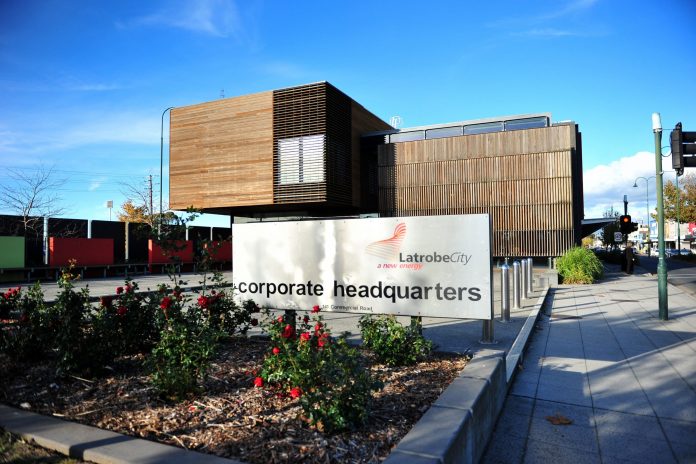ZAIDA GLIBANOVIC and STEFAN BRADLEY
By ZAIDA GLIBANOVIC AND STEFAN BRADLEY
COUNCILORS are on notice.
The state government is set to introduce new legislation to improve the performance and accountability of councillors state-wide.
With much public commotion in Latrobe City Council recently, these reforms aim to bring back public confidence in local government representatives.
This legislation comes after the Independent Broad-based Anti-corruption Commission (IBAC) tabled its annual report to state Parliament late last month. It also came after local leaders and the community called for action to restore public trust following poor councillor behaviour.
Latrobe City Council (LCC) said that upholding good governance was the most important priority of a local government.
“We recognise the Victorian government’s commitment to improving council integrity and performance,” a council spokesperson said.
LCC has undergone an enormous economic transition over the past few years; issues include the closing of the Hazelwood power station and the impending closure of the native timber industry, and the closing of the public gallery in council meetings – a central collision point for public angst.
The recent governance rules motion that was passed in the October council meeting raised public interest and scrutiny.
Crs Graeme Middlemiss and Dan Clancey expressed their wish that the state government would standardise governance rules across the state’s municipalities to avoid the debate and discrepancies.
Their wishes have come true as the new state government council reforms include a model code of conduct that will help councils develop and standardise their policies.
Though the council said, “At present, we have not been provided with the model code of conduct”, the model will be introduced in the first quarter of 2024 along with the other reforms.
“Addressing community concerns is paramount, and we will work diligently to align with the model code of conduct as part of our ongoing efforts to uphold the highest standards of governance and accountability,” a council spokesperson said.
IBAC delivered 11 special reports and made 68 formal recommendations to improve conduct by public sector agencies, local government and police.
Two LCC Councillors were found to be in breach of the code of conduct since the start of 2022.
Minister for Local Government, Melissa Horne, announced that legislation to be introduced early next year would elevate governance and integrity standards in the state’s 79 councils, encouraging quality candidates to put themselves forward at local government elections to be held state-wide in October 2024.
The Local Government Culture Project has drawn more than 140 submissions from residents, mayors, councillors, council staff and peak bodies.
Reforms will introduce mandatory training for elected representatives, a uniform councillor code of conduct and strengthened powers for the Minister to address councillor conduct.
The Local Government Act 2020 mandates induction training for new councillors; the changes will take this focus on education and training further with a requirement for ongoing training for councillors.
Good governance is critical to ensure councils make sound decisions and deliver the services their communities need, the state government has maintained. Expanded powers to address councillor misconduct will discourage poor behaviour.
Reforms will give the Minister the ability to suspend or disqualify individual councillors found to have created a risk to health and safety or prevented the council from performing its function.
The Chief Municipal Inspector will also have enhanced powers, including the ability to issue infringement notices.
A model code of conduct for councillors with tougher sanctions for misconduct will provide a uniform set of standards and reduce the regulatory burden on councils, which will no longer need to establish their own codes.
The government will consult with the sector in coming months about the legislation and throughout next year on developing regulations for the councillor model code of conduct and mandatory training. Legislation is planned to be introduced in the first quarter of 2024.
The amendments to the Local Government Act 2020 will address recommendations made by integrity bodies such as IBAC and the Chief Municipal Inspector.
Ms Horne said communities should believe councils are acting in their best interests.
“Victorians rightly have high expectations of their local councillors, and these changes will ensure residents can have confidence their best interests are being served,” she said.
“Having a model code of conduct and mandatory training makes sense and extends reforms we introduced before the last council elections. They will help encourage quality candidates to come forward for the 2024 polls.”
Rural Councils Victoria (RCV) has welcomed the announcements.
“Rural Councils Victoria has held meetings with the Minister to discuss issues such as good governance, training for new councillors and a strong state-wide code of conduct for councillors that holds those who bully or otherwise abuse their positions to account,” RCV Chair, Cr Mary-Ann Brown said.
“RCV welcomes these powers to deal with individuals and we look forward to consulting with the Minister and her department to help ensure that Victoria gets the best possible results for their communities and councils.
“Becoming a councillor is a significant commitment and can be challenging at times. We welcome efforts to provide greater support and training for new councillors so they will be able to better serve their communities.
“The proposed changes strike a good balance between encouraging high standards of behaviour and providing avenues to deal with poor behaviour.”












